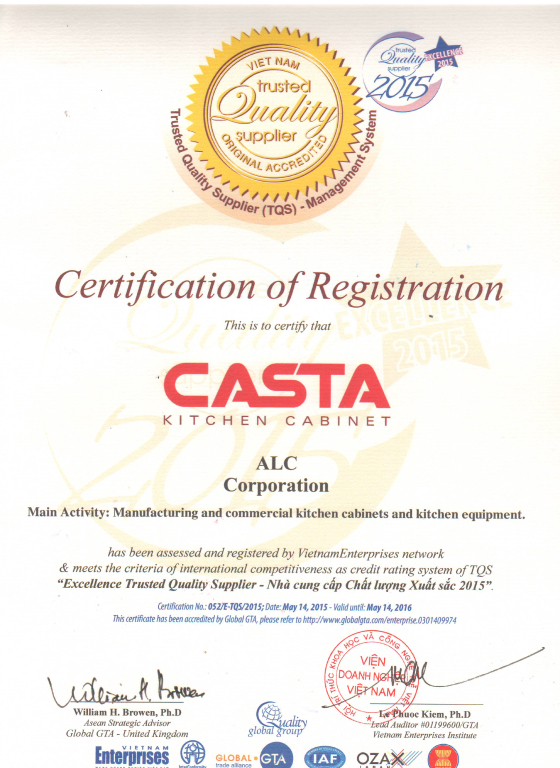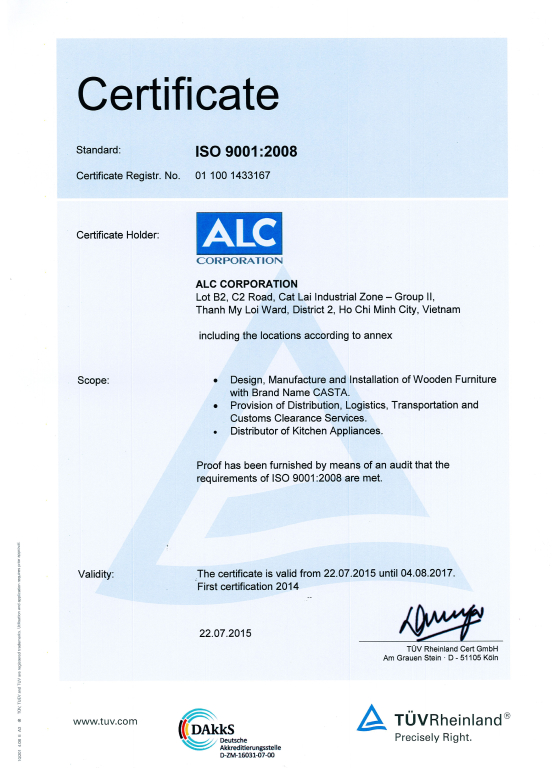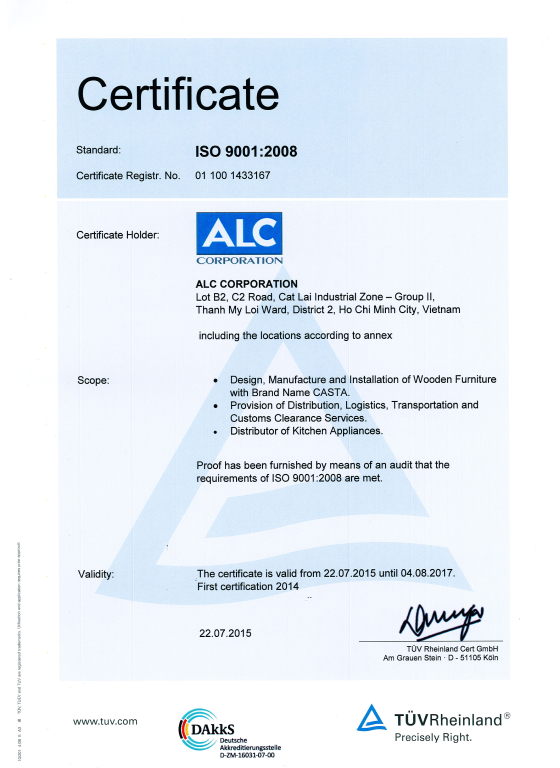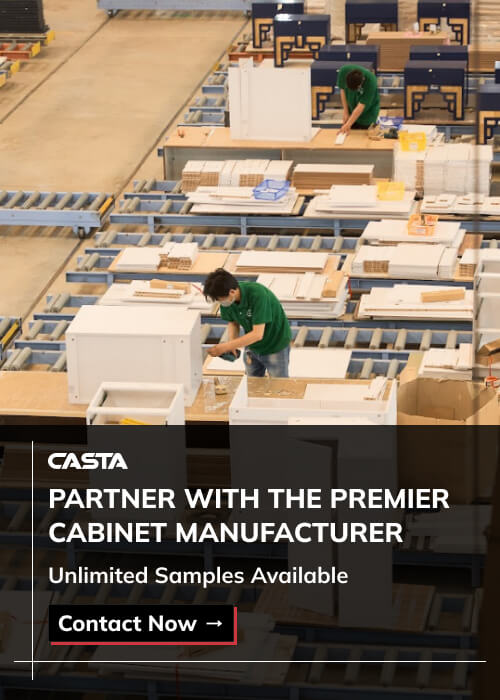In today’s competitive market, working with the right private label furniture manufacturer is crucial for brands aiming to scale with speed, quality, and design control—without building in-house production. Whether you’re a contractor, retailer, or startup, this 2025 guide explores how private label furniture works, what defines a reliable partner, key trends in North America, Vietnam vs. China sourcing, and why Casta Cabinetry leads among global private label furniture manufacturers.
Table of Contents
1. What Is Private Label Furniture Manufacturer?
Private label furniture refers to products manufactured by a third-party supplier, then branded and sold under your company's name. These items are built to your exact specifications—including dimensions, material choices, finish types, labeling, and packaging. A reliable private label furniture manufacturer often offers end-to-end service, from digital prototyping to final packing and container loading, allowing your business to focus on brand growth and customer acquisition.
How Private Label Compares to Other Manufacturing Models
| Manufacturing Type | Brand Ownership | Customization | Who Sells It |
| Private Label | You | High | You |
| OEM (Original Equipment Manufacturer) | Shared | Medium | You / Factory |
| Generic | Factory | None | Multiple Buyers |
Private label gives you the power to create exclusive product lines without owning a factory or hiring in-house craftsmen. Instead, you partner with a private label furniture manufacturer who brings your design to life while you retain control over how it’s marketed and sold.
Why Private Label Makes Sense for US Furniture Brands
- Speed to Market: Launch a new product line in as little as 3–6 months, without the delays associated with building internal production capacity.
- Brand Consistency: Keep your visual identity intact across all SKUs, including packaging and labeling.
- Operational Efficiency: Focus on design, marketing, and distribution while your manufacturing partner handles production and quality control.
- Low Minimum Order Quantities (MOQs): Many modern private label furniture manufacturers offer flexible production runs—ideal for brand pilots, seasonal lines, or container-sharing with other distributors.
Private label production is especially valuable for US-based contractors, home furnishing brands, or design firms looking to scale operations without increasing fixed costs. By working with a seasoned private label furniture manufacturer, you gain access to high-quality craftsmanship and certified materials—without taking on factory ownership risks.
Learn more: Top rated cabinet manufacturers
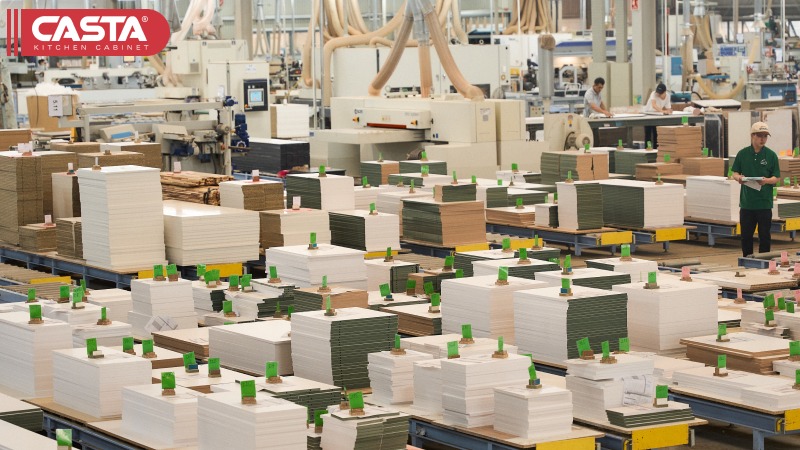
2. Industry Standards That Define a Reliable Partner
To ensure consistent quality and regulatory compliance, working with a certified private label furniture manufacturers essential—especially when exporting to markets like the United States and Canada. Trusted manufacturers not only follow strict environmental and safety regulations but also supply proper documentation to validate the integrity of their materials and processes.
2.1 Core Certifications to Look For
The most reliable private label furniture manufacturers operate within internationally recognized quality frameworks. These certifications are non-negotiable for U.S. brands and contractors focused on health, safety, and long-term product performance.
CARB Phase 2 (California Air Resources Board)
Sets strict limits on formaldehyde emissions for composite wood products—no more than 0.05 parts per million (ppm). This is a legal requirement for distribution in California and strongly recommended across North America.
Confirms that wood materials are responsibly sourced from sustainably managed forests. FSC (Forest Stewardship Council) and PEFC (Programme for the Endorsement of Forest Certification) documentation is often required for public projects and eco-conscious developments.
The American National Standards Institute and the Business and Institutional Furniture Manufacturers Association jointly establish structural and safety requirements for furniture used in commercial and contract environments. This ensures performance under heavy daily use.
2.2 Material Safety & Product Longevity
Leading private label furniture manufacturers prioritize material quality as a direct investment in customer satisfaction and regulatory compliance. When evaluating suppliers, examine their material standards and safety practices:
Panels with reduced volatile organic compound emissions are essential in applications such as healthcare facilities, schools, hospitality venues, and multi-family housing. They support indoor air quality and contribute to LEED credits in green building certification.
Tempered Coatings & High-Durability Finishes
For furniture exposed to heat, moisture, or chemicals—such as in kitchens or commercial dining spaces—high-quality finishes like polyurethane or UV-cured lacquer provide essential durability and aesthetic longevity.
Learn more: Material & Finish Innovations: Elevating Cabinet Design and Durability
Routine Testing & Documentation
Reputable private label furniture manufacturers conduct mechanical and chemical testing for:
- Load-bearing strength
- Moisture and humidity resistance
- Adhesion and abrasion of coatings
- Finish uniformity and color stability
Before placing your first order, request detailed test results, third-party certifications, and compliance documents from your shortlisted private label furniture manufacturer. These materials not only safeguard your brand but simplify customs clearance and ensure acceptance by U.S. distributors and project managers.
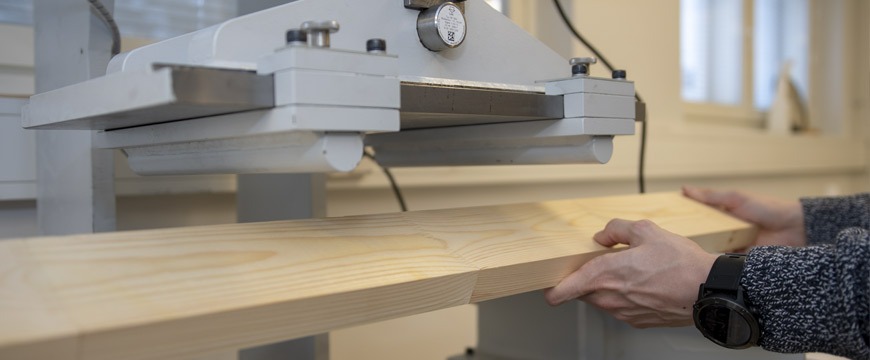
2.3 Quick Certification & Quality Checklist
Make sure your chosen manufacturer offers:
- CARB Phase 2–certified wood panels
- FSC or PEFC chain-of-custody certification
- ANSI/BIFMA compliance for commercial furniture
- Formaldehyde and VOC emission test reports
- Coating adhesion and surface durability tests
- Export-ready documentation for U.S. customs clearance
These standards aren't just box-checking—they’re what separate short-term vendors from long-term manufacturing partners.
3. Customization: The Core of Private Label Success
Customization is the foundation of every successful partnership with a private label furniture manufacturer. For brands looking to differentiate in crowded markets, the ability to develop furniture tailored to specific aesthetic, functional, and regional needs is not just a luxury—it’s a competitive necessity.
3.1 What Customization Looks Like in Practice
Top-tier private label furniture manufacturers offer full customization across every design component, enabling brands to build collections that align perfectly with target market expectations and positioning.
Frame Materials
- Medium-Density Fiberboard (MDF): Ideal for painted finishes and intricate profiles
- Solid Wood: Used for heirloom-quality products in luxury settings
- Plywood: Lightweight and strong—great for flat-pack furniture
- Metal: Increasingly popular in urban and industrial designs
Learn more: Types of kitchen cabinets materials
Panel Finishes
- High-Gloss UV: Sleek and modern, with excellent scratch resistance
- Natural Veneer: Brings warmth and authenticity to mid- to high-end designs
- Laminate: Durable and cost-effective for high-volume production
- Lacquer: Offers deep color saturation with a smooth touch
Door Styles
- Shaker: Timeless design suitable for both traditional and modern interiors
- Slab: Clean, minimalist profiles preferred in contemporary builds
- Glass-Front: Creates a high-end display effect for open kitchens or showrooms
- Grooved: Adds depth and tactile appeal to MDF and plywood doors
Learn more: Top traditional cabinet door styles
Smart Add-Ons
- Push-to-Open Mechanisms
- Soft-Close Hinges and Drawer Glides
- Integrated Lighting Systems (LED strip or puck lights)
- Concealed Charging Ports or Motion Sensors
These options allow a private label furniture manufacturer to translate your brand vision into fully realized, factory-ready furniture solutions.
3.2 The Iterative Design Process That Drives Quality
Unlike off-the-shelf models, private label production requires a methodical design approach. Trusted private label furniture manufacturers typically offer a 3–5 stage customization workflow designed for speed, clarity, and alignment with your brand’s goals.
3D Visualization
Initial renderings based on your sketches, mood boards, or CAD files help visualize product lines before production begins.
CAD Prototype Approval
Detailed technical drawings, including dimensions, joinery methods, and material specs, are shared for formal approval.
Physical Samples
Clients receive real product samples—including hardware, finishes, and construction details—to validate all design decisions.
Final Sign-Off
Once confirmed, the order moves into mass production, with consistent QA checks at each stage.
For North American brands, the most efficient private label furniture manufacturers offer secure, cloud-based configuration platforms and assign a dedicated account manager to oversee revisions, approvals, and documentation flow. This minimizes back-and-forth delays and ensures transparency throughout the design cycle.
Learn more: The Ultimate Guide to Modern Design Kitchen Cabinets
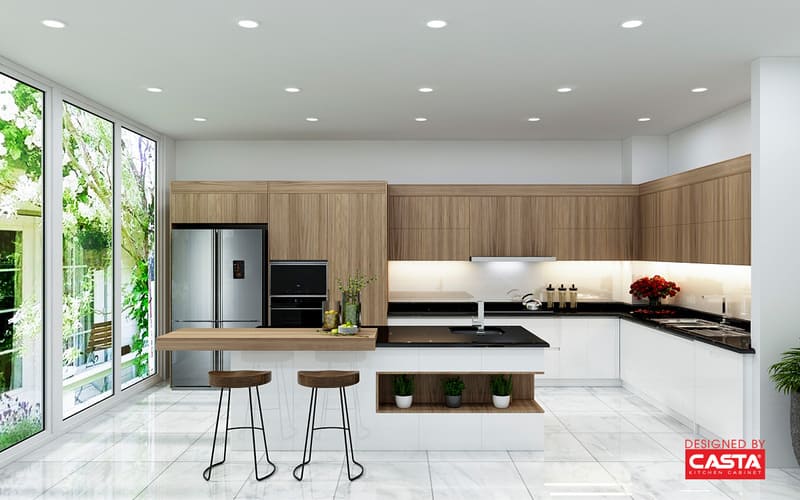
3.3 Proven ROI for U.S. Clients
For North American brands, the cabinet manufacturing process isn’t just about design—it’s a strategic business decision. Partnering with the right private label furniture manufacturer delivers clear, measurable ROI across multiple points in your supply chain and sales funnel.
Faster Time-to-Market
- CAD-to-production cycles as short as 3–5 weeks
- Reduces internal design bottlenecks and accelerates seasonal or promotional launches
Higher Gross Margins
- Custom cabinets and branded finishes typically yield 20–40% markup over generic SKUs
- Enables differentiation in retail, showroom, and DTC channels
Lower Return & Defect Rates
- CNC precision and certified materials reduce rework and warranty claims
- Clients report 30–50% fewer returns after switching to Casta’s standardized processes
Stronger Brand Equity
- OEM features like logo stamping, barcode labeling, and custom finishes build retail trust
- Consistent fit and finish boost customer satisfaction and repeat sales
4. Why Casta Cabinetry Leads the Private Label Market
As a trusted private label furniture manufacturer serving the U.S. and global markets, Casta Cabinetry combines precision engineering, material integrity, and reliable logistics to meet the high standards of contractors, cabinet brands, and furniture companies. With over 20 years of experience and major investments in digital manufacturing, Casta stands out as a long-term partner for premium private label production.
4.1 High-Tech Production Facility
Casta’s flagship facility in Vietnam spans over 100,000 square meters, purpose-built for precision cabinet and furniture manufacturing. The production floor is equipped with fully automated SCM, HOMAG, and Biesse machines—European systems known for their speed, reliability, and accuracy.
- Location: Long Khánh, Vietnam
- Facility Size: 100,000+ m²
- Machinery: European CNC lines, edge-banders, press systems
- Cutting Tolerance: ±0.1 mm
- ERP System: SAP-integrated for production traceability and order control
This advanced setup enables fast ramp-up from small pilot batches to high-volume runs while maintaining tight quality control across every product line.
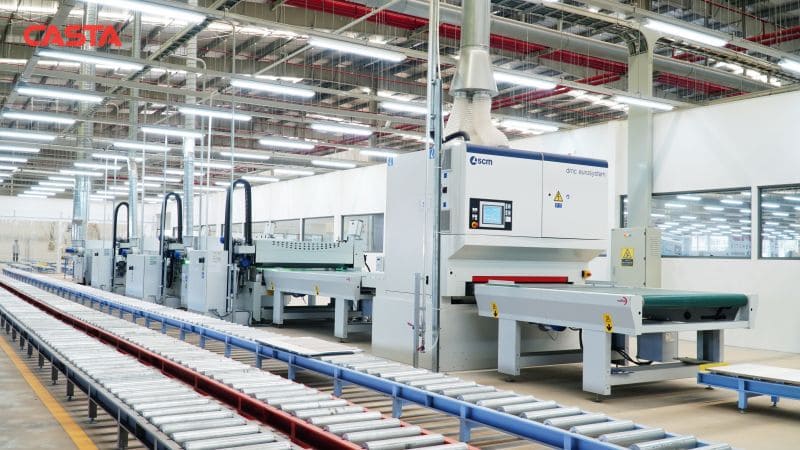
4.2 Premium, Certified Materials
Every component used by Casta meets the regulatory and performance expectations of North American markets. As a responsible private label furniture manufacturer, we provide full material traceability and third-party certifications for each shipment.
- Wood Components: FSC-certified solid wood, oak, ash, maple, and sustainable veneers
- Panels: CARB Phase 2 and E1 compliant MDF, plywood, and HDF cores
- Surface Finishes: Acrylic, polyurethane (PU), UV lacquer, melamine, and laminates—all verified low-VOC
By sourcing only certified materials, Casta helps reduce indoor air emissions, ensure durability, and support your brand’s environmental commitments.
Learn more: Casta’s ISO-Qualified Cabinet Certification: Setting the Gold Standard for Quality and Reliability
4.3 Consistent 98% On-Time Delivery
For project-driven businesses like developers and private label brands, delays are not just inconvenient—they’re expensive. That’s why Casta’s logistics network is built to meet strict delivery windows.
- Flat-Pack Optimization: Cabinets shipped as RTA or KD to maximize container utilization
- Freight Coordination: In-house export team handles documentation, booking, and consolidation
- Real-Time Tracking: GPS-enabled shipping updates ensure transparency from factory to destination port
This 98%+ on-time delivery rate isn’t a promise—it’s a verified benchmark that helps clients plan confidently.
Learn more: Casta’s Outstanding International Projects
4.4 Flexible MOQs for Growing Brands
Whether you’re launching a new furniture line or scaling up a high-volume SKU, Casta offers tiered minimum order quantities tailored to your business stage.
- Small Batch Entry: As low as 50 doors or 1 mixed container for sampling and testing
- Bulk Orders: Up to 200 containers/month for established clients with national or regional distribution
This flexible model allows small-to-mid-sized U.S. brands to enter the market without upfront volume pressure—one of the key advantages of working with an agile private label furniture manufacturer.
4.5 End-to-End Design Support
Product development doesn’t stop at CAD files. Casta works side-by-side with your product team to refine every detail, ensuring manufacturability, aesthetic alignment, and brand consistency.
- CAD/BIM Files: BIM-ready models tailored for architecture, retail, or catalog integration
- Finish Matching: Digitally matched finishes and edge samples for visual alignment
- Profile Customization: Full tooling support for custom grooves, bevels, or raised-panel profiles
Learn more: Casta’s Ideal Custom Cabinet Designs
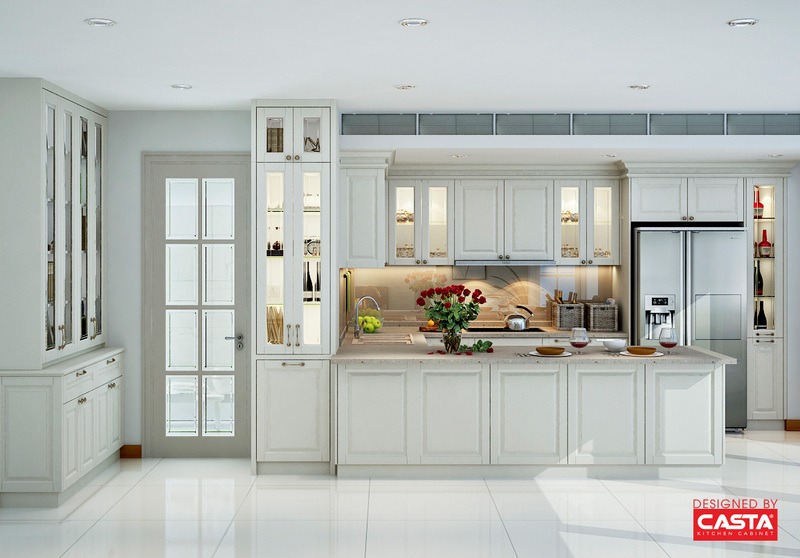
These collaborative design workflows ensure you receive a product that not only meets your specs—but strengthens your brand identity in the marketplace.
4.6 Real-World Case: U.S. Retail Brand Launches Private Label Line with Casta
Client: U.S.-based direct-to-consumer (DTC) kitchen cabinet brand
Project Scope: 3,000+ frameless RTA cabinet sets for online launch
Objective: Launch a branded line with high style, low inventory risk, and verified health compliance
Casta’s Role:
- Developed 5 door styles (flat panel, shaker, glass insert) with FSC-certified MDF and CARB P2 compliance
- Provided digitally matched finish samples and packaging mockups for online previews
- Shipped 2 pilot containers within 30 days—including QR-coded instructions, barcoded packaging, and custom logo stamping
Results:
- Product line sold out within 45 days of launch
- Zero customs clearance delays
- Client re-ordered 5× volume within 3 months and expanded SKUs into vanity and closet categories
Why it Worked:
Casta’s end-to-end OEM expertise—CAD support, flexible MOQ, export packaging, and branded delivery—helped the client enter the U.S. market quickly, confidently, and with minimal overhead.
5. Market Trends Driving Private Label Growth
The rise of private label furniture in North America is no longer a trend—it’s a transformation. Contractors, furniture brands, and developers are increasingly turning to strategic partnerships with reliable private label furniture manufacturers to stay competitive in a rapidly evolving marketplace. From consumer demand to supply chain realities, the data points to sustained growth and innovation.
5.1 Demand Surges in North America
The North American market has witnessed 12–15% annual growth in private label furniture since 2019. This surge reflects a shift in how furniture companies view ownership, branding, and production control.
- 60% of U.S. furniture brands now source through private label models, avoiding the capital investment of in-house manufacturing while maintaining complete control over product branding.
- 82% of U.S. contractors prioritize material durability over initial cost, citing long-term maintenance savings and fewer callbacks as critical reasons for choosing premium private label suppliers.
- Smaller MOQ capabilities are enabling regional cabinet and furniture brands to prototype new lines without the pressure of mass orders—something only an experienced private label furniture manufacturer can offer.
What’s more, flat-pack and ready-to-assemble (RTA) formats have allowed retailers and distributors to keep logistics costs low while scaling up quickly.
5.2 What Consumers Want in 2025
Private label furniture success hinges on understanding consumer behavior—and in 2025, buyers are smarter and more selective than ever. End-users aren’t just looking for a cabinet or a chair—they’re buying into health, sustainability, and intelligent living.
- Sustainability: Over 70% of consumers expect eco-certifications like CARB Phase 2, FSC, or E1 when shopping for furniture, especially in kitchen and bathroom installations where indoor air quality matters most.
- Smart Features: Demand is rising for motion technology, including push-to-open drawers, embedded lighting, and sensor-activated cabinet doors—options now commonly offered by forward-thinking private label furniture manufacturers.
- Low Maintenance: Finishes that are scratch-resistant, fingerprint-proof, and water-repellent are increasingly favored in both residential and hospitality projects.
Today’s successful brands are those that work with manufacturers who don’t just supply furniture—but help co-engineer next-gen products that align with what modern buyers want.
Learn more: Kitchen cabinet trends
6. Vietnam vs China: Which Private Label Furniture Manufacturer is Best?
When selecting a private label furniture manufacturer for North American projects, most brands narrow their search to two major hubs: Vietnam and China. Both countries offer scale and experience, but key differences in quality control, digitalization, sustainability, and customer service make the comparison essential—especially for companies focused on long-term brand consistency.
| Category | Vietnam (Casta) | China (General) |
| Machinery Tech | Fully automated CNC lines by SCM, HOMAG, Biesse; laser-edge banding | Mixed range—some high-tech, but often manual or semi-automated |
| Material Sourcing | FSC, CARB Phase 2, and PEFC-certified wood available across all production lines | Certifications vary by factory; not all offer full documentation |
| Digital Design Integration | CAD software, 3D visualization, SAP-connected supply chain | CAD availability inconsistent; few link to real-time production systems |
| MOQ Flexibility | Flexible—starts from 50 units to 200+ containers per month | Many factories require 1 container minimum or more |
| Lead Time | 25–40 days (door-to-port), optimized for container efficiency | 35–60 days on average, depending on region and order complexity |
| After-Sales Support | Dedicated U.S.-focused account teams, multilingual, logistics tracking | Often limited; post-shipment communication gaps common |
Verdict:
For U.S. contractors, retailers, and furniture brands prioritizing precision engineering, agile order handling, and compliance with U.S. material standards, Vietnam offers a clear competitive edge. In particular, Vietnam-based private label furniture manufacturers like Casta deliver on what matters most: scalable design customization, short lead times, and full certifications.
Unlike many Chinese factories that focus on cost-first production, Vietnamese factories—especially Casta—take a process-driven approach. With state-of-the-art European equipment, digitalized manufacturing, and a proactive export team, Casta offers unmatched support for brands seeking consistency and quality across product lines.
Learn more: Vietnam vs China Cabinet Manufacturers: A Comparative Analysis
7. Best Practices for Working with a Private Label Furniture Manufacturer
Establishing a successful relationship with a private label furniture manufacturer requires more than sending a purchase order. From design validation to logistics coordination, a proactive approach ensures you receive furniture that meets your specifications, branding standards, and delivery deadlines. Below are four best practices for North American brands, retailers, and contractors sourcing private label cabinetry or furniture at scale.
7.1 Start with a Pilot Run
Before placing large-volume orders, it's essential to start with a controlled pilot run. This helps you verify:
- Surface Finish Durability: Test paint, lacquer, or veneer finishes under normal wear and tear conditions.
- Hardware & Hinge Compatibility: Ensure that selected hinges, slides, and hardware match regional preferences (Blum, Häfele, etc.).
- Branding Alignment: Validate logo application, packaging format, and labeling standards to match your retail or project guidelines.
Working with an experienced private label furniture manufacturer like Casta enables you to customize these pilots with low minimum order quantities (as few as 50 units), reducing upfront risk.
7.2 Ask for Full Documentation
The best private label furniture partners are transparent about their material sourcing and compliance certifications. At a minimum, request:
- CARB Phase 2 Certificates: Confirming formaldehyde emissions ≤ 0.05 ppm for U.S. legal compliance.
- FSC/PEFC Chain-of-Custody Tracking: Ensuring sustainable forest management practices.
- VOC Emission Reports: Especially for painted or lacquered surfaces used in residential or hospitality projects.
These documents protect your brand legally and offer reassurance to eco-conscious buyers, especially in high-end U.S. markets.
7.3 Schedule Iterative Design Rounds
One of the hallmarks of a reliable private label furniture manufacturer is their ability to work collaboratively through iterative design. Allocate time and budget for:
- CAD Confirmation: Review digital drawings with exact door profiles, hardware specs, and dimensions.
- Color Matching & Sample Approval: Receive physical samples for lighting and finish validation.
- Functional Prototyping: Test drawers, doors, and panels in real-life conditions to prevent costly design flaws at scale.
Casta’s 3–5 round revision process ensures every detail is signed off before full production begins.
7.4 Prioritize Export-Ready Logistics
Production quality is only part of the equation—how well your private label products are shipped matters equally. Choose a private label furniture manufacturer with in-house logistics capabilities to support:
- Flat-Pack or KD Assembly Formats: For better container utilization and lower shipping costs.
- Labeling & Manuals: Box labels, barcode scanning, and branded assembly instructions for your end customer.
- Buffer Planning: From CAD finalization to port delivery, budget 60–90 days depending on order complexity and shipping schedules.
Learn more: Sourcing Cabinets and Furniture from Vietnam: Your Ultimate Guide
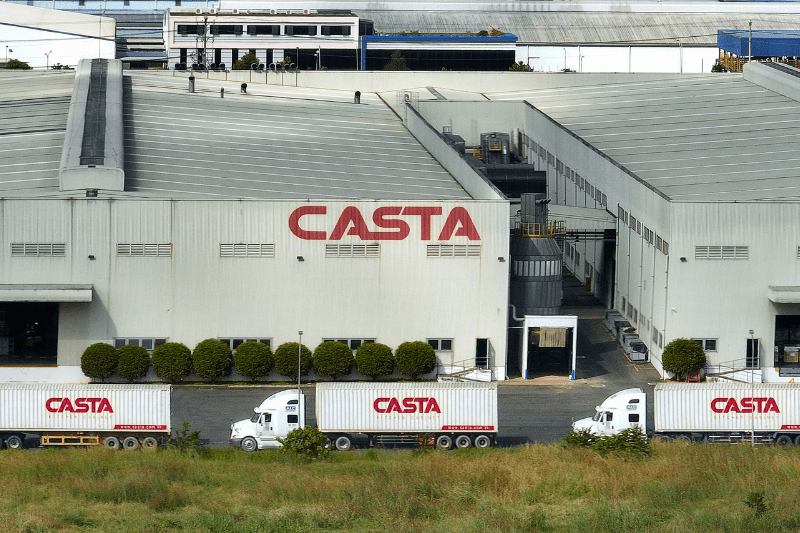
8. Conclusion
Choosing the right private label furniture manufacturer goes beyond price—it’s about finding a partner who delivers precision, certified materials, and brand-ready customization at scale. From CAD support to flat-pack logistics, every step of the cabinet manufacturing process should streamline your supply chain and strengthen your brand.
Casta Cabinetry checks every box. With advanced machinery, 98%+ on-time delivery, and flexible MOQs, they help U.S. brands move faster and scale smarter.
Planning for Q4 and 2026 has already started. Lock in production now to stay ahead of capacity and avoid costly delays.
9. Frequently Asked Questions (FAQ)
What’s the difference between OEM and private label?
Can I use my own design or must I pick from a catalog?
How are private label furniture orders shipped to the US?
What’s the typical turnaround time?
How do I ensure material safety and finish consistency?
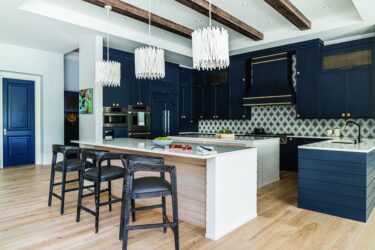
Top Cabinet Manufacturers in Florida: A Capability-Based Buy...
Cabinet manufacturers in Florida play a critical role in one of the fastest-growing construction markets in North Americ...
01/10/2026 | David Nguyen
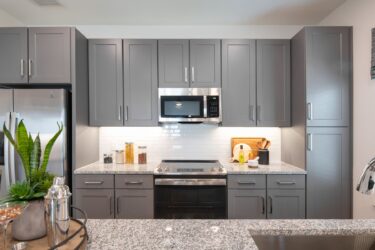
Top North Carolina Cabinet Manufacturers | Best NC Kitchen ...
North Carolina cabinet manufacturers have long been trusted across the U.S. thanks to the state’s deep heritage in woodw...
01/08/2026 | David Nguyen
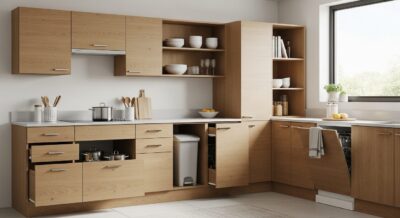
Top Cabinet Manufacturers in Arizona | Best Arizona Kitchen ...
Cabinet manufacturers in Arizona have gained increasing attention as construction activity accelerates across Phoenix, T...
01/06/2026 | David Nguyen
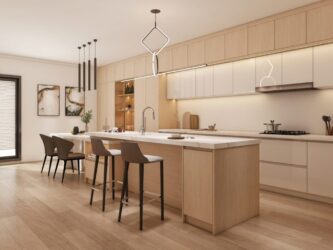
Top Cabinet Manufacturers Indiana | Best Indiana Kitchen Cab...
Cabinet manufacturers Indiana have become increasingly relevant as contractors and developers look for dependable Midwes...
01/04/2026 | David Nguyen
Contact us
Casta is always ready to listen and answer all customers' questions
